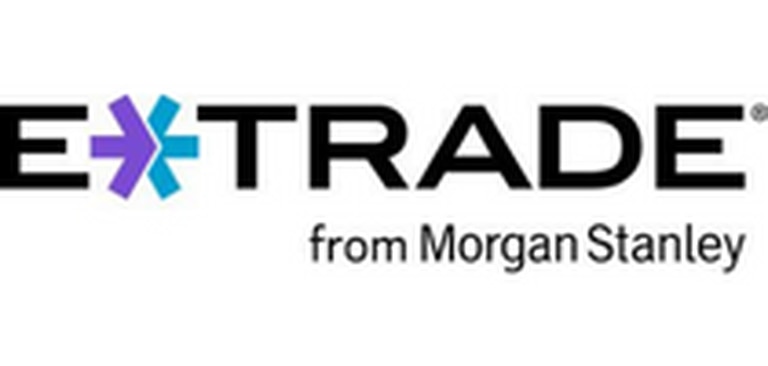Initial Public Offerings, or IPOs, are some of the riskiest yet most rewarding stocks on the market.
IPOs are the first public stocks that a previously private company releases into the market. Though not every IPO investment results in Facebook-level returns, many experienced investors have benefitted from being the first in line to invest in a breakthrough new company.
However, investing in IPOs is not always wise, and it requires a degree of knowledge and expertise to result in high gains. Read on to learn more about IPO stocks, the process to secure one, and whether they are worth the financial risk.
What is an IPO?
An IPO is the initial release of public shares from a previously private company. These shares may take the form of newly issued stocks or stocks that private investors held in the past.
Many start-up companies only offer shares to a few private investors. Think of the businesses that you see on Shark Tank - these companies usually seek one or two investors to contribute funds and help get the company on its feet.
However, once a company begins producing capital gains, it may release shares into the stock market in the form of IPO stocks. Only a few investors actually receive each IPO, but their release may get the ball rolling for future shares to hit the market.
The release of IPOs does not always promise profitable returns. Because the company has not existed on the open market before, and investors cannot view previous stock returns, investing comes with significant risk.
And though IPO stocks have produced significant capital gains in the past, as with companies like Coca-Cola, they are less profitable today. IPOs have become widely publicized over the past decade, so investors no longer have the chance to sneak into a large corporation unnoticed.
Even so, if an investor purchases the right IPO stock at the right time, they could see considerable returns on their investment.
Because investing in an IPO is a complex process, investors need to fully understand these types of stocks and their associated risks before taking the plunge.
How Do I Invest in an IPO?
Though investing in an IPO may seem as straightforward as any other investment, you should make sure you understand the entire process before taking each step.
Become Eligible
Not every investor can qualify for an IPO stock. To begin the process, you need to have a well-established partnership with an investment brokerage firm that offers IPOs. Before you proceed, make sure that your broker can access the IPO stock that you're eyeing.
Each brokerage firm has different requirements for investors to purchase IPOs. You should speak with your current firm to learn more about its requirements, then determine whether you need to open an account with another firm to become eligible for an IPO.
Because the IPO investment process is trickier than investing in typical stocks, you should take some time to become comfortable with your brokerage firm and its procedures well before the IPO hits the market.
Request Your Maximum Shares
Once you are eligible, your next step will be to request a specific number of shares from the company.
Because IPO stocks are so popular, you may not receive all of the shares you request. Instead, think of the number you request more as the maximum number of shares you would be willing to purchase rather than the number you will actually secure.
Let your brokerage firm representative know the cap you would like to place on your share bid, and your broker will attempt to secure this number of shares once the IPO opens.
Make Your Purchase
You can place your order as soon as the IPO goes public. However, you will not know for sure whether you have secured any shares until the order goes through. If the purchase is successful, the shares will appear in your account like any other stock.
Keep in mind that the initial offering price usually increases as soon as the stock hits the market. Unless you are one of the first few investors to secure the IPO, you should expect to pay more than this initial price. However, you can set a limit order that details the maximum price you would be willing to pay per share.
Most brokerage firms advise against trying to sell your IPO stock right after you purchase it. While doing so is technically legal, if your broker notices you selling yours, they may prohibit you from purchasing future IPOs through their firm.
Related: Best Fractional Share Investing Brokerages
How to Buy IPO Stock
Purchasing your IPO stock through an online brokerage firm streamlines the process. We have reviewed several popular brokers and chosen our favorite platforms for new, everyday, and established investors to use to purchase IPOs.
Best for Beginners: E*TRADE

If you have never purchased an IPO stock or are new to the investment world in general, E*TRADE may be the best broker for you. E*TRADE is an electronic trading platform that allows investors to trade a variety of assets directly through its website.
This platform has fewer eligibility requirements than other online investment companies. Instead of requiring investors to have a history with the company, E*TRADE requests that you fill out a questionnaire to begin the IPO investment process.
A representative from the firm will review your questionnaire to determine if you are eligible for the IPO. If so, you will need to indicate how many shares you would like to purchase as well as the limit order at which your purchase will cap.
Though E*TRADE is a simple, easy-to-use investing platform, you should still make sure you understand the IPO process before participating. Talk to a representative from the firm to hear a more detailed explanation of the company's IPO processes.
Learn More: E*TRADE Review
Best for Everyday Investors: Webull

Many large investment firms save their IPO stocks for their most-established investors. However, Webull gives the average investor a chance to secure shares in high-end companies, making it our top choice for everyday investors.
Webull utilizes one of the most straightforward IPO investment platforms out there and allows investors without special connections to get in on the IPO action. The site uses a mobile app and a desktop website, and you can participate in IPO transactions right from your phone.
The Webull app features a comprehensive list of current IPO stock options, a timeline of the offerings, and basic information about each company.
When you place an order for an IPO, there is no guarantee that it will go through. Instead, placing an order indicates your interest in the stock. If you do receive your allocation, [wp_shortcode_22] will post the shares to your account on the effective date.
Though the app is not the most user-friendly and could use some updates, the investment process is simple and gives everyone a fair chance at receiving a share in an up-and-coming company. Webull empowers the everyday investor to achieve more than other websites would allow.
Learn More: Webull Review
Best for Established Investors: TD Ameritrade

TD Ameritrade is an online brokerage that offers electronic stock trading, investing, and retirement planning. This firm only lets investors who have a history with the company invest in its IPO stocks, making it our top choice for established investors.
To purchase an IPO through TD Ameritrade, you will need to meet one of the following criteria:
- You hold at least $250,000 in assets with the company
- You have made at least 30 trades through TD over the past year
Because TD Ameritrade only allows its top investors to purchase IPOs, those investors will only have to compete with a small pool of others and thus have a better chance of securing their IPO.
TD Ameritrade has a help page on its website that will walk you through the IPO process. Some investors have found the IPO processes that TD Ameritrade uses more confusing than other brokers, so you should familiarize yourself with its procedures before jumping into the investment.
Learn More: TD Ameritrade Review
How to Find Upcoming IPOs
IPO stocks are hot commodities, so many popular investment websites post upcoming IPOs as soon as a company announces its plans to go public.
You can typically track upcoming IPOs through the following platforms:
- Stock exchange websites
- IPO Monitor
- Google News
- Yahoo! Finance
Most of these sites give you the option to set up alerts that will notify you about new IPOs so that you won't miss a beat when a new company hits the public market.
Risks of Investing in IPOs
IPOs are riskier than conventional stocks, but with high risk often comes high reward.
Research shows that for several years after their release, IPO stocks tend to underperform compared to traditional stocks. When you purchase an IPO, you may not receive as high a return as you would when purchasing other stock options.
However, after the first two years, most IPOs tend to begin performing in line with what investors would expect. Investors who hold onto their stock for a few years may even see an increase in performance after this time.
Research also indicates that IPOs that raise at least $1 billion tend to outperform the market by close to 7%. In contrast, IPOs that make under $1 billion often underperform the market by around 19%.
Profitable companies tend to be worth the IPO investment risk, while unsuccessful ones can cause investors to lose a decent chunk of their investment. Unfortunately, there is no way to know how a new company will perform in the stock market until it releases IPOs. To strike big, you need to be willing to take the risk and bet on a relatively unknown company.
Though investing in an up-and-coming company seems promising, keep these associated risks in mind. Your investment could take years to begin performing on a similar level to traditional stocks, and it may never reach a high-performing degree at all.
Related: The Best Stock Research Tools
Pros and Cons
Investing in an IPO stock can be a highly beneficial move, but it also comes with several drawbacks.
IPO stocks are commission-free
Some IPO stocks start out underpriced
Investors could profit from price jumps that occur on listing day if they secure the share at the original listing price
Most IPOs offer slim returns on investment
IPOs are passive rather than active forms of investing
IPO share prices are sometimes higher than the value of the company
Before you dive into an IPO investment, be sure to weigh the pros and cons to determine whether investing would be the right decision for you.
FAQs
Who can invest in IPO stocks?
Any investor can participate in IPOs. However, well-established investors who partner with quality brokerage firms have a better chance than new investors of securing an IPO at a low price.
What companies have offered IPO stocks in the past?
Some of the biggest companies making headlines today once offered IPOs. A few of these companies include Airbnb, Snowflake, DoorDash, Wish, and Palantir. Companies that you have never heard of have also offered IPOs. Remember that releasing an IPO does not always indicate a company's future success.
What time does an IPO start trading?
Many IPOs start trading around 11 a.m. EST on their designated release day. However, IPOs could begin trading in the afternoon as well, sometimes as late as 4 p.m. EST.
Related: Do IPO Investors Usually Beat the Market?
Final Thoughts
Participating in an IPO can feel like a fun and exciting process, but it is not always a financially wise move. And though some firms allow new investors to get in on the IPO process, experienced investors have a better chance of securing high-performing IPOs at the lowest rates.
To have the best chance of success, you should understand the market, the process, and the regulations of your brokerage firm before attempting to purchase an IPO. Proceed with caution and be aware that your investment could underperform just as much as it could overperform; you won't know until you go for it.
Finally, ask yourself this question: Am I willing to take the risk of losing my investment in exchange for the small chance of making it big? If your answer is yes, then go for it.









